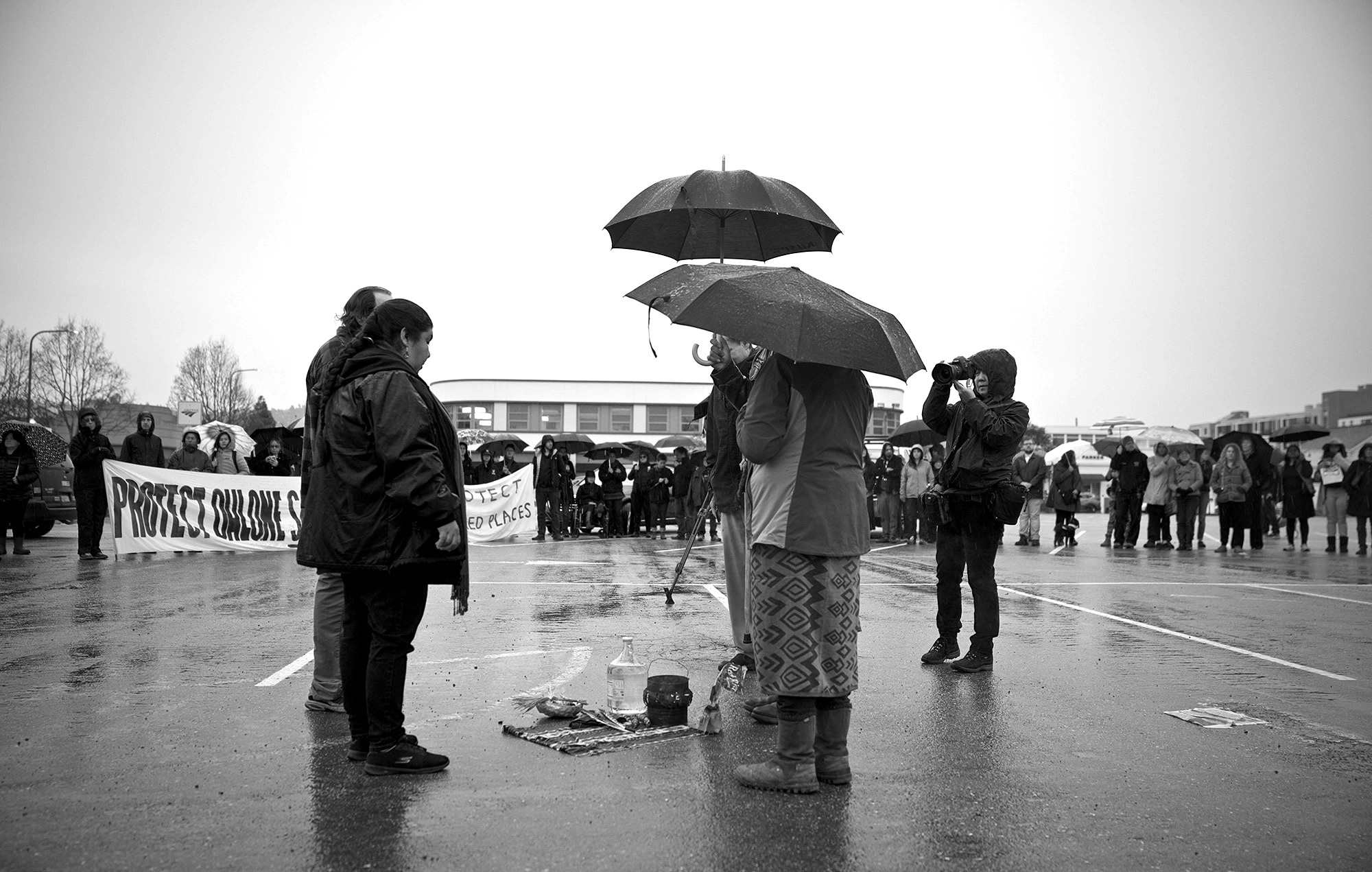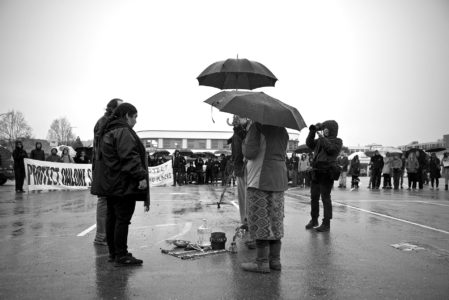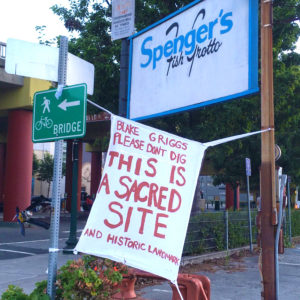In a step forward for sacred sites protection statewide, AB 168 has been unanimously passed by the California Senate, Assembly and Housing Committee, and was signed by Governor Newsom on September 25, 2020! Thank you to everyone who responded to our call for support by sending messages or making phone calls in support of this critically important legislation.
AB 168 closes the egregious loophole created by SB 35 that allowed developers to gain fast-tracked approval of housing projects at locations with known tribal cultural resources, without being subject to CEQA environmental review or tribal consultation. That is the very loophole that developers Ruegg and Ellsworth and the Spenger Family recently attempted to use to force though fast-tracked approval of their proposed 260-unit housing and retail project at the West Berkeley Shellmound and Village site.
What is the significance of AB 168?
AB 168 ensures that any project site that contains a tribal cultural resource listed on a national, state, tribal, or local historic register—such as the West Berkeley Shellmound—will be automatically disqualified for SB 35 fast-tracked approval.
Furthermore, under AB 168, developers are now required to conduct a consultation process with a California Native American tribe prior to submitting any application for SB 35 fast-tracked approval. That consultation process will identify whether there are any significant tribal cultural resources or tribal sacred landscapes that could be impacted by the proposed project. If cultural resources could be affected by a proposed development, a mutually agreeable and enforceable agreement between the developer and the tribe must be documented that avoids or addresses impacts to tribal cultural resources. If such an agreement cannot be reached, the project is not eligible for SB 35 fast-tracking.
Thus, AB 168 actually exceeds the standards put in place for tribal consultation under AB 52, California’s landmark law requiring consultations with tribes in regard to tribal cultural resources. It goes further by requiring the consent and approval of tribes in regard to the treatment of cultural resources and sacred sites, before a project is eligible for a permit under SB 35.
As the Senate Committee on Housing’s analysis states, “this delegation of decision-making power would be unprecedented and would grant California Native American tribes municipal decision-making power over housing projects.” The California Building Industry Association, California Business Properties Association, California Association of Realtors and other industry groups also cited this delegation of power to tribes as the principle reason that they lobbied against the passage of AB 168, demanding it be amended so that tribes are not allowed “an unchallengeable veto over whether a housing project is eligible for SB 35’s entitlement process.”
In our view, AB 168 represents a vitally important step in the direction of affirming the rights of California tribes to protect their sacred sites and cultural resources, recognizing that the tribes should be lead decision makers in regard to their sacred sites. The value of tribal consultation processes as prescribed by AB 52 is very limited if tribes have no ability to say “no” to a project that threatens an unacceptable level of impact to cultural resources. The sponsor of AB 168, Assemblywoman Cecilia Aguiar-Curry, wrote in a statement recommending passage of the bill:
“Without this bill, tribal cultural resources may be subject to avoidable destruction and desecration. We have lost much of our State’s Native history, and once a religious or cultural artifact, site, or burial ground is lost, it cannot be replaced. To honor California’s history and diversity, it is important that we continue to honor the consultation process with Native American tribes and protect tribal cultural resources. Early identification and consultation with California tribes will ensure that generations of Californians will play a role in honoring the culture and sovereignty of Native American tribes and communities, and facilitate necessary housing development by avoiding litigation.”
For further reading
- Sacramento Business Journal 5/28/2020: AB 168: Protections for at-risk tribal cultural sites by Michelle LaPena
- Senate Committee on Housing 8/6/2020: AB 168 Analysis and Summary (PDF, 15 pages)
- State of California Bill Information: AB 168 Planning and zoning: housing development: streamlined approvals. (2019-2020)
- Governor’s press release 9/25/2020: On Native American Day, Governor Newsom Takes Action to Restore Land, Promote Equity for California Native Communities



